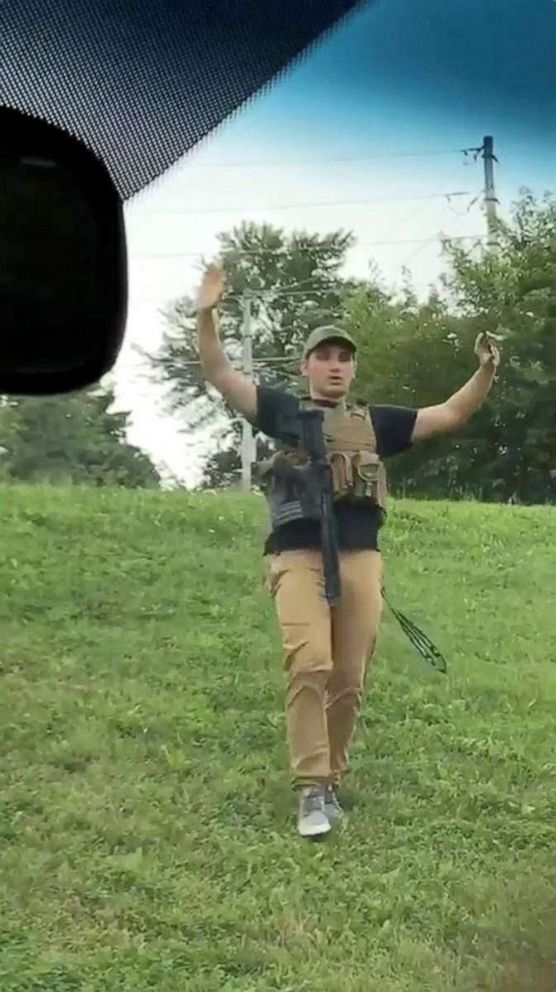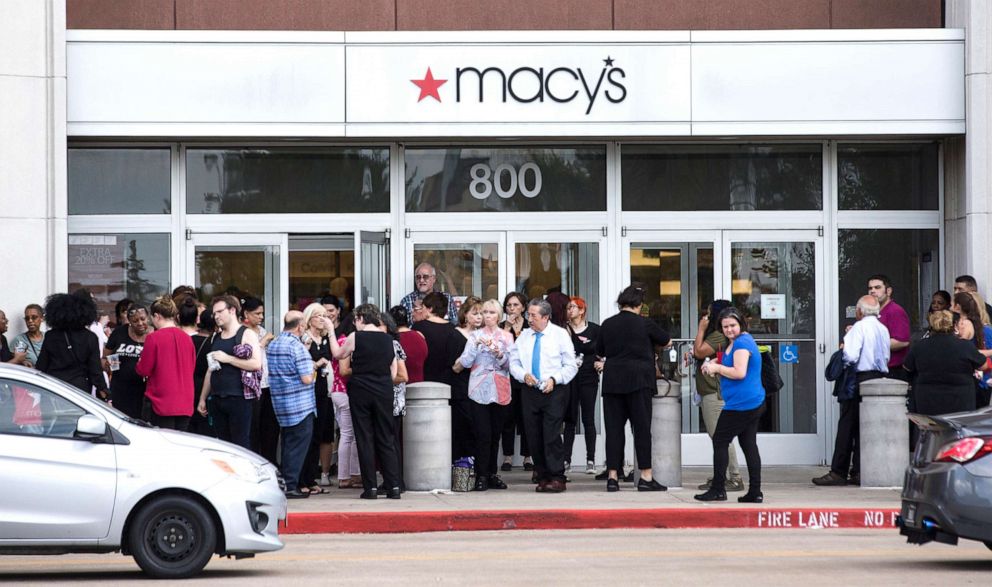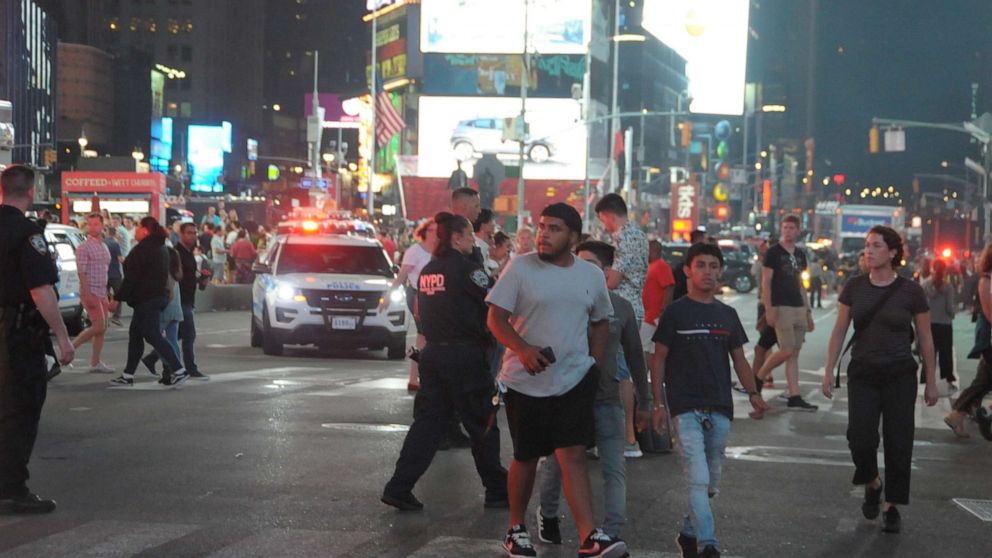What security experts say to do in public places to stay safe
Prior to two back-to-back mass deadly shootings, a loud sound in New York City’s busy Times Square may not have caused public panic. But after the shootings in El Paso and Dayton, the sound of motorcycles backfiring caused public panic and a stampede.
Scares in the wake of the shootings in El Paso, Texas, and Dayton, Ohio, have prompted concerns elsewhere, as a masked man who made a public threat in a Houston mall caused people to flee and a man wearing body armor was arrested at a Springfield, Missouri, Walmart when he brought a loaded rifle into the store.
The heightened awareness of threats -- perceived or actual -- shows more than just a tense environment, said John Cohen, a former Homeland Security official and current criminal justice professor who also works as an ABC News consultant.
"People are scared but also people just don't seem confident that the government is doing enough to protect them," Cohen said.
And even in cases where police are on the scene quickly, that doesn't automatically mean that violence will be stopped -- or prevented.

For example, first responders arrived on the scene at the Dayton shooting in less than a minute but nine victims still died and dozens of others were injured.
Even though the stampede in Times Square resulted in several minor injuries after the motorcycles backfired, officials said that the public reacted "correctly" to a perceived threat.
NYPD Chief of Counterterrorism James Waters said the day after the incident that the public did the right thing by choosing to "run and put distance between themselves and those sounds."
"Awareness of the public is something we've been striving to achieve for a very, very long time," Waters said. "People hear those noises, have the psychological concerns of, 'Are we in the middle of an active shooter?' They did exactly what we train them to do: run. If you can run, run. If you can't, hide, and if all else fails fight -- and fight for your life because that's what it will be about."
Waters was referring to the government-backed motto that urges people to "run, hide, fight" when facing an active-shooter event.
Cohen said that he urges everyone, including his own children, to run through a possible worst-case scenario whenever they go somewhere in public.
"Take a moment. Identify where the exits are, and think to yourself 'What would I do if an attack began? Where would I run? Where could I hide? Am I prepared if I need to fight the attacker?" Cohen said.
He likened these mental run-throughs to all of the time that police officers spend practicing at shooting ranges or running through drills.
"When you think about situations you may be confronted with, you begin to prepare your brain to react should you be confronted with that type of situation," Cohen said.

He said that in moments when people "freeze" in stressful situations "that's your brain taking in information and figuring out how you should respond." By running through those worst-case scenarios regularly, Cohen says it will cut down that thinking time because it's something you've trained your brain to anticipate.
In situations like the one in Times Square, Cohen agreed with Waters that if people are running, you too should run, but keep your own situation in mind. "If there's a large crowd running in a certain direction, if you can't keep up with that crowd you want to get out of the way of the crowd," he said.
And if you're left in a situation where hiding is the best option, Cohen said that it's important to not only hide out of sight of the attacker, but behind or underneath something that could stop a bullet. He pointed to the shooting in Sutherland Springs, Texas, where some victims hid behind pews in the church when they couldn't flee. In that particular shooting, the suspect walked up the aisles and shot those who hid, Cohen said, pointing out that while the pews may have provided temporary visual hiding, they didn't protect the victims from bullets.
In the end, Cohen stressed that people should trust their instincts: "If you sense that you're in danger, leave. It's fine to be embarrassed later."
"It's still a very slight chance," he added, "but there's a greater chance today than there was 10 years ago that any person may be present at the site of this type of mass shooting. And if that is the case, the likelihood that you will survive is greater if you have prepared."




